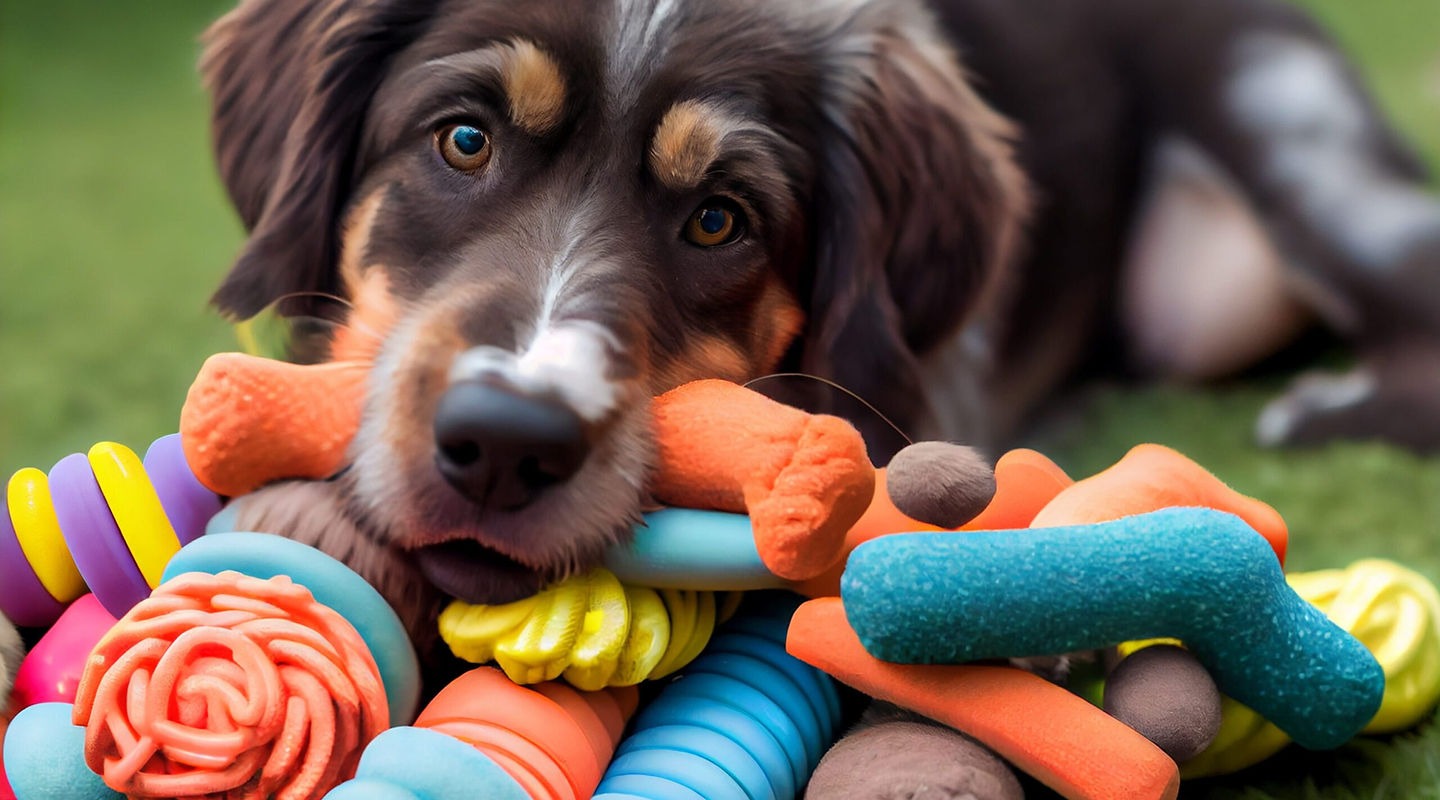
Breed & Being: What Your Favorite Pet Reveals About Your Personality
Explore the fascinating psychology behind pet breed preferences and uncover what your choice says about your character, lifestyle, values, and emotional needs through expert insights and compelling examples.
🐶 Pet Star
30 min read · 30, Jul 2025

Introduction: The Deep Connection Between Pets and Personality
Pets are more than companions—they are reflections of our inner selves. The pet breeds we gravitate toward often reveal subconscious traits about our personalities, values, and even emotional needs. From the energetic Labrador Retriever lover to the reserved Siamese cat enthusiast, these preferences speak volumes about who we are.
Psychologists and animal behaviorists have studied these connections, highlighting how our choice of pet breed aligns with our lifestyles, social behaviors, and personal identities. This article delves into the intriguing interplay between pet breed preferences and personality traits, supported by research, expert opinions, and real-life examples.
How Personality Influences Pet Breed Preferences
The Psychology Behind Breed Choices
Choosing a pet breed isn’t just about appearance or popularity; it’s often a subconscious reflection of personality. Traits such as extroversion, conscientiousness, openness to experience, and emotional stability can shape which breeds individuals feel drawn to.
For example, outgoing individuals may prefer active and sociable dog breeds, while introverts might favor independent and calm cats. Understanding this helps us appreciate not just our pets, but ourselves.
The Role of Lifestyle and Environment
Lifestyle factors—such as activity level, living space, family situation, and work schedule—also influence breed preferences. Busy professionals may choose low-maintenance pets, while families with children often gravitate toward friendly and tolerant breeds.
What Dog Breeds Say About You
Labrador Retriever: The Friendly Extrovert
Labrador Retrievers top popularity charts worldwide. Known for their friendliness, loyalty, and boundless energy, they often attract social, outgoing, and nurturing personalities. These dog lovers tend to enjoy outdoor activities, social gatherings, and community involvement.
German Shepherd: The Loyal Protector
Owners of German Shepherds usually value loyalty, intelligence, and discipline. They are often responsible, protective individuals who appreciate structure and enjoy problem-solving. Their personality reflects a blend of confidence and dedication.
French Bulldog: The Charming Companion
The French Bulldog’s playful yet easy-going nature appeals to urban dwellers and creative types. These owners are often sociable but value comfort and companionship in smaller spaces, blending relaxation with bursts of fun.
Border Collie: The High Achiever
Border Collies are intelligent and driven, favored by owners who value mental stimulation and challenge. These people often have high energy, are goal-oriented, and enjoy engaging in tasks or learning new skills.
What Cat Breeds Say About You
Siamese Cat: The Vocal Intellectual
Siamese cats are known for their intelligence, vocal nature, and sociability. Owners are often articulate, emotionally expressive, and value deep connections. They appreciate intellectual stimulation and emotional openness.
Persian Cat: The Elegant Traditionalist
Persian cats appeal to those who appreciate luxury, calm, and tradition. These owners tend to be patient, refined, and enjoy a serene home environment. Their personalities often reflect a preference for stability and comfort.
Maine Coon: The Gentle Giant Lover
Maine Coon cats, known for their large size and gentle nature, attract nurturing individuals who enjoy affection but appreciate independence. These owners tend to be warm, generous, and family-oriented.
Russian Blue: The Reserved Observer
The Russian Blue’s quiet elegance appeals to introspective, thoughtful individuals who value privacy and subtlety. These owners are often calm, analytical, and enjoy peaceful, orderly surroundings.
Personality Insights from Uncommon Pet Breeds
Bearded Dragons: The Patient Explorer
Owners of bearded dragons often embody patience, curiosity, and an appreciation for uniqueness. These individuals enjoy low-maintenance companionship and have an open-minded, exploratory personality.
Cockatoos: The Dramatic Performer
Cockatoo owners are frequently extroverted, creative, and attention-loving. These birds’ dramatic flair attracts people who enjoy lively interaction and expressive relationships.
The Science Behind Pet Preferences
Research on Personality and Pet Choice
Studies have shown correlations between the Big Five personality traits and pet preferences. For example, extroverts prefer energetic breeds, while those scoring high in agreeableness choose friendly, sociable pets.
Psychological Benefits of Breed-Personality Matches
Choosing a pet breed that aligns with your personality can enhance emotional well-being, reduce stress, and increase satisfaction in the owner-pet relationship.
How Your Favorite Breed Reflects Your Values and Beliefs
Cultural and Social Influences on Breed Preferences
Our cultural background and social environment play a significant role in shaping our pet preferences. For example, in some countries, breeds like the Akita or Shiba Inu are not only popular pets but cultural symbols representing loyalty, honor, and resilience. People who identify strongly with these values might gravitate toward such breeds, consciously or unconsciously embracing those cultural ideals.
Similarly, societies with agrarian roots often value working dog breeds—like Border Collies or Australian Shepherds—that embody hard work, intelligence, and reliability. Choosing such a breed may reflect an owner’s appreciation for diligence and practicality.
In urban settings, smaller companion dogs such as Pugs or French Bulldogs are preferred, reflecting values tied to convenience, companionship, and adaptability to a fast-paced lifestyle. Here, breed preference mirrors social norms and environmental constraints, showing how broader societal influences shape individual choices.
Ethical Considerations and Adoption Choices
Values concerning animal welfare deeply influence pet breed preferences. People who prioritize rescue and adoption often seek mixed breeds or rare breeds to give these animals a second chance. This choice reflects compassion, empathy, and social responsibility.
Moreover, some owners avoid breeds with known health problems linked to irresponsible breeding (like brachycephalic dogs) as a reflection of ethical beliefs surrounding animal health and welfare. These owners may also support breeding programs that focus on genetic diversity and the well-being of the breed.
Personality Traits Commonly Linked to Popular Breeds
Extroversion and Social Energy
Extroverted individuals often favor breeds that match their lively and sociable nature. Dogs like Golden Retrievers, Labradors, and Beagles require high interaction, exercise, and social engagement, mirroring their owners’ outgoing personalities.
For example, a study published in the Journal of Applied Animal Welfare Science found extroverts are more likely to own active and sociable dog breeds, suggesting their need for constant interaction translates into pet choices that fit their energetic lifestyles.
Introversion and Preference for Independence
Conversely, introverted people may prefer independent or low-maintenance breeds such as cats or more reserved dog breeds like Shiba Inus. These pets require less constant attention, allowing owners to enjoy companionship without overwhelming social demands.
The Russian Blue cat, for example, appeals to introverts who value quiet reflection and close, selective relationships. Their reserved personalities align with those who prefer calm and solitude.
How Age and Life Stage Affect Breed Preferences
Young Adults and Energetic Breeds
Younger adults often prefer breeds that can keep up with their active lifestyles. High-energy dogs like Border Collies, Jack Russell Terriers, or Huskies align with the adventurous and spontaneous traits common in this age group.
Families and Child-Friendly Breeds
Families with young children tend to gravitate toward breeds known for their patience and gentleness, such as Golden Retrievers, Boxers, and Cavaliers. These breeds reflect the family’s need for a safe, nurturing companion that integrates well into busy households.
Older Adults and Calm, Low-Maintenance Pets
Older adults often prefer calmer breeds or cats with relaxed temperaments, such as Senior Labs or Persian cats. These animals match the slower pace and preference for companionship without demanding excessive physical activity.
How Personality Shapes Pet Training and Interaction Styles
Owners Who Thrive on Structure Prefer Disciplined Breeds
Individuals who enjoy routine and structure often select breeds known for trainability and obedience, like German Shepherds or Poodles. These owners appreciate a pet they can train to perform specific tasks or engage in obedience sports, reflecting their own preference for order.
Creative and Spontaneous Owners Choose Playful, Unpredictable Pets
Those with high openness to experience may prefer breeds that exhibit quirky or playful behaviors, such as Dalmatians or Boston Terriers. Their enjoyment of novelty and creativity is mirrored in the unpredictable, lively personalities of these pets.
The Role of Emotional Needs in Breed Selection
Seeking Comfort: Calm and Affectionate Breeds
Individuals with a need for emotional support may gravitate toward breeds known for their affectionate and soothing nature, such as Cavalier King Charles Spaniels or Ragdoll cats. These pets provide comfort and companionship, meeting their owners’ emotional needs.
The Need for Protection and Loyalty
Some prefer breeds that embody loyalty and protection, like Doberman Pinschers or Akitas. These owners often value a sense of security and may have personalities that seek control and stability in their environments.
Conclusion
Understanding what your favorite pet breed reveals about your personality offers a fascinating window into the intricate relationship between humans and animals. Our choices often mirror deeply rooted traits such as extroversion, introversion, creativity, and emotional needs. Whether you are drawn to the loyal German Shepherd, the independent Russian Blue cat, or the playful French Bulldog, these preferences are more than coincidence—they reflect who you are and how you interact with the world.
Personality influences how we care for, train, and bond with our pets, shaping our mutual happiness and well-being. Furthermore, lifestyle, cultural background, and ethical beliefs all contribute to the breeds we embrace, adding layers of meaning to our choices. For example, selecting a family-friendly Labrador Retriever may signal a nurturing and sociable nature, while choosing a rare or rescue breed can showcase compassion and responsibility.
Scientific research supports the idea that aligning pet breeds with owner personalities can reduce stress, improve emotional health, and foster stronger bonds. These insights underscore the importance of thoughtful pet selection—not only for the animal’s welfare but for the owner’s personal fulfillment.
Ultimately, pets serve as mirrors reflecting our inner worlds and values. Recognizing this connection enhances our appreciation of both ourselves and our animal companions. Whether through companionship, loyalty, protection, or comfort, the breed we choose is a unique expression of identity.
Q&A on What Your Favorite Pet Breed Says About Your Personality
Q1: What does choosing a high-energy dog breed say about an owner’s personality?
A: It often indicates that the owner is extroverted, active, and enjoys social interaction and physical activity.
Q2: Why do introverted people tend to prefer independent or calm breeds?
A: Because such breeds require less constant attention and provide companionship without overwhelming social demands.
Q3: How do cultural backgrounds influence pet breed preferences?
A: Cultural values and traditions often shape which breeds are favored, reflecting local customs and societal norms.
Q4: Can adopting rare or rescue breeds reflect personal values?
A: Yes, it often shows compassion, social responsibility, and a commitment to animal welfare.
Q5: What personality traits align with owners of breeds like German Shepherds?
A: Traits such as loyalty, discipline, and a preference for structure are common among these owners.
Q6: How does age affect pet breed preference?
A: Younger people often prefer energetic breeds, while older adults may choose calmer, low-maintenance pets.
Q7: What type of owners are attracted to playful and unpredictable breeds?
A: Those high in openness to experience, who enjoy novelty and creativity.
Q8: How do pets fulfill emotional needs?
A: Some breeds provide comfort and affection, while others offer protection and a sense of security.
Q9: What role does lifestyle play in breed selection?
A: Owners choose breeds that fit their activity level, living environment, and daily routines.
Q10: Does matching pet breeds with owner personality improve wellbeing?
A: Yes, it can reduce stress and foster stronger emotional bonds between owner and pet.
Similar Articles
Find more relatable content in similar Articles

Vegan Pet Toys and Accessories That Last Longer...
As pet owners grow more eco-co.. Read More

How Climate Change Affects Wild and Domestic Animals...
Climate change is dramatically.. Read More

Sustainable Pet Products: What to Look for in 2025...
As sustainability becomes a ce.. Read More

How Pets Strengthen Family Bonds...
Pets are more than just compan.. Read More
Explore Other Categories
© 2024 Copyrights by rPets. All Rights Reserved.